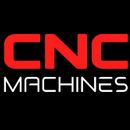The Role of Artificial Intelligence in Manufacturing: Transforming the Future of Production

The Role of Artificial Intelligence in Manufacturing: Transforming the Future of Production
Artificial Intelligence (AI) has become a transformative force across various industries, and manufacturing is no exception. As companies strive to enhance efficiency, reduce costs, and improve product quality, the integration of AI technologies into manufacturing processes is proving to be a game-changer. This article explores the impact of artificial intelligence in manufacturing, its applications, benefits, challenges, and future trends.
What is Artificial Intelligence in Manufacturing?
Artificial Intelligence in manufacturing refers to the use of advanced algorithms, machine learning, and data analytics to automate and optimize production processes. AI technologies enable machines and systems to learn from data, adapt to changing conditions, and make informed decisions without human intervention.
Applications of AI in Manufacturing
AI is being utilized in various aspects of manufacturing, leading to significant improvements in efficiency and productivity. Key applications include:
1. Predictive Maintenance
AI-powered predictive maintenance solutions analyze data from machines and equipment to predict when maintenance is required. By identifying potential failures before they occur, manufacturers can reduce downtime and extend the lifespan of their assets.
- Example: Sensors embedded in machines collect performance data, which AI algorithms analyze to forecast maintenance needs, allowing manufacturers to schedule repairs during non-peak hours.
2. Quality Control
AI technologies are increasingly used for quality assurance in manufacturing processes. Machine vision systems equipped with AI can inspect products for defects, ensuring that only high-quality items reach the market.
- Example: AI-driven cameras can detect anomalies in products at high speeds, reducing the reliance on manual inspections and minimizing the risk of human error.
3. Supply Chain Optimization
AI helps manufacturers optimize their supply chain operations by analyzing data to improve demand forecasting, inventory management, and logistics planning. This leads to reduced costs and improved efficiency.
- Example: AI algorithms can analyze historical sales data and market trends to predict future demand, enabling manufacturers to adjust production schedules accordingly.
4. Robotics and Automation
AI is at the heart of advancements in robotics, enabling machines to perform complex tasks with precision and flexibility. Collaborative robots (cobots) equipped with AI can work alongside human operators to enhance productivity.
- Example: AI-driven robots can adapt to changes in production requirements, allowing manufacturers to implement flexible manufacturing systems that can quickly respond to new orders.
5. Design and Prototyping
AI technologies are being used to streamline the design and prototyping process. Generative design software powered by AI can explore a wide range of design alternatives, optimizing for performance, cost, and manufacturability.
- Example: Engineers can input parameters such as material type and weight requirements, and the AI system will generate multiple design options, enabling faster innovation.
Benefits of AI in Manufacturing
The integration of artificial intelligence into manufacturing offers numerous benefits, including:
- Increased Efficiency: AI technologies automate repetitive tasks, allowing workers to focus on higher-value activities.
- Cost Reduction: Predictive maintenance and optimized supply chains can lead to significant cost savings by reducing waste and improving resource utilization.
- Improved Product Quality: AI-driven quality control ensures that defects are identified and addressed promptly, resulting in higher-quality products.
- Enhanced Decision-Making: Data-driven insights provided by AI enable manufacturers to make informed decisions that enhance overall operations.
Challenges of Implementing AI in Manufacturing
Despite the many advantages, there are challenges associated with implementing AI in manufacturing:
- Initial Costs: The upfront investment in AI technology, infrastructure, and training can be substantial.
- Data Security: Increased reliance on data raises concerns about cybersecurity and the protection of sensitive information.
- Change Management: Adopting AI requires a cultural shift within organizations, and employees may need training to adapt to new technologies and workflows.
The Future of AI in Manufacturing
As AI technology continues to evolve, its impact on manufacturing is expected to grow. Key trends include:
- Integration of IoT and AI: The combination of the Internet of Things (IoT) and AI will lead to smarter manufacturing systems, where machines communicate and collaborate in real-time.
- Personalization: AI will enable manufacturers to offer more customized products, meeting specific customer needs through flexible production methods.
- Sustainability: AI will play a critical role in optimizing energy usage and reducing waste, contributing to more sustainable manufacturing practices.
Conclusion
Artificial intelligence is transforming the manufacturing landscape, enabling companies to improve efficiency, reduce costs, and enhance product quality. As manufacturers embrace AI technologies, they unlock new opportunities for innovation and growth. While challenges remain, the future of AI in manufacturing looks promising, with advancements in technology set to reshape the industry. By leveraging the power of AI, manufacturers can position themselves for success in an increasingly competitive market, driving progress and achieving excellence in production.


